
BOOKS - Tracing Language Movement in Africa

Tracing Language Movement in Africa
Author: Ericka Ann Albaugh
Year: 2018
Format: PDF
File size: PDF 5.6 MB
Language: English

Year: 2018
Format: PDF
File size: PDF 5.6 MB
Language: English

Tracing Language Movement in Africa: A Call for Interdisciplinary Dialogue As we delve into the complexities of language movement and change in Africa, it becomes evident that the continent's diversity of ethnicities and languages has often been perceived as a fragmented landscape. However, this perception is not entirely accurate. In reality, most people in Africa can communicate with others within and across state boundaries, highlighting the need for a more unified approach to studying language evolution. This book brings together eighteen scholars from various disciplines, including history, archaeology, anthropology, linguistics, political science, and philosophy, to explore the commonalities and distinctions in our understanding of language change and movement in Africa. The volume is structured to reflect the differing conceptions of language that arise from each discipline's theoretical and methodological approaches. Each contribution includes a brief explanation of the discipline's approach to language movement and change, making the chapters accessible to nonspecialists. The organization of the volume encourages interdisciplinary conversations around the study of language change in Africa, opening up new avenues for research and inspiring scholars to adapt the questions, data, and methods of other disciplines to their own field of study. History: A Framework for Understanding Language Movement The historical context of language movement in Africa is crucial to understanding the evolution of languages on the continent.
Отслеживание языкового движения в Африке: Призыв к междисциплинарному диалогу По мере того, как мы углубляемся в сложности языкового движения и изменений в Африке, становится очевидным, что разнообразие этнических групп и языков континента часто воспринимается как фрагментированный ландшафт. Однако такое восприятие не совсем точно. В действительности, большинство людей в Африке могут общаться с другими внутри и за пределами государственных границ, подчеркивая необходимость более единого подхода к изучению языковой эволюции. Эта книга объединяет восемнадцать ученых из различных дисциплин, включая историю, археологию, антропологию, лингвистику, политологию и философию, чтобы исследовать общие черты и различия в нашем понимании языковых изменений и движения в Африке. Том структурирован, чтобы отразить различные концепции языка, которые возникают из теоретических и методологических подходов каждой дисциплины. Каждый вклад включает в себя краткое объяснение подхода дисциплины к языковому движению и изменениям, делая главы доступными для неспециалистов. Организация тома поощряет междисциплинарные беседы вокруг изучения языковых изменений в Африке, открывая новые возможности для исследований и вдохновляя ученых адаптировать вопросы, данные и методы других дисциплин к их собственной области изучения. История: основа для понимания языкового движения Исторический контекст языкового движения в Африке имеет решающее значение для понимания эволюции языков на континенте.
Suivre le mouvement linguistique en Afrique : Un appel au dialogue interdisciplinaire À mesure que nous approfondissons la complexité du mouvement linguistique et le changement en Afrique, il devient évident que la diversité des ethnies et des langues du continent est souvent perçue comme un paysage fragmenté. Mais cette perception n'est pas tout à fait exacte. En fait, la plupart des gens en Afrique peuvent communiquer avec d'autres à l'intérieur et à l'extérieur des frontières de l'État, soulignant la nécessité d'une approche plus unifiée de l'apprentissage de l'évolution linguistique. Ce livre réunit dix-huit chercheurs de différentes disciplines, dont l'histoire, l'archéologie, l'anthropologie, la linguistique, la science politique et la philosophie, afin d'explorer les points communs et les différences dans notre compréhension des changements et des mouvements linguistiques en Afrique. volume est structuré pour refléter les différents concepts du langage qui découlent des approches théoriques et méthodologiques de chaque discipline. Chaque contribution comprend une brève explication de l'approche de la discipline à l'égard du mouvement linguistique et du changement, rendant les chapitres accessibles aux non-spécialistes. L'organisation du volume encourage les conversations interdisciplinaires autour de l'étude des changements linguistiques en Afrique, ouvrant de nouvelles possibilités de recherche et incitant les scientifiques à adapter les questions, les données et les méthodes d'autres disciplines à leur propre domaine d'étude. L'histoire : une base pour comprendre le mouvement linguistique contexte historique du mouvement linguistique en Afrique est crucial pour comprendre l'évolution des langues sur le continent.
Seguimiento del movimiento lingüístico en África: Un llamado al diálogo interdisciplinario A medida que profundizamos en la complejidad del movimiento lingüístico y los cambios en África, se hace evidente que la diversidad de grupos étnicos y lenguas del continente a menudo se percibe como un paisaje fragmentado. n embargo, tal percepción no es del todo precisa. De hecho, la mayoría de la gente en África puede comunicarse con otros dentro y fuera de las fronteras estatales, destacando la necesidad de un enfoque más unificado para aprender la evolución lingüística. Este libro reúne a dieciocho estudiosos de diversas disciplinas, entre ellas historia, arqueología, antropología, lingüística, ciencias políticas y filosofía, para investigar los rasgos comunes y las diferencias en nuestra comprensión del cambio lingüístico y el movimiento en África. volumen está estructurado para reflejar los diferentes conceptos del lenguaje que surgen de los enfoques teóricos y metodológicos de cada disciplina. Cada contribución incluye una breve explicación del enfoque de la disciplina hacia el movimiento lingüístico y el cambio, poniendo los capítulos a disposición de los no especialistas. La organización del volumen fomenta conversaciones interdisciplinarias en torno al estudio del cambio lingüístico en África, abriendo nuevas oportunidades de investigación e inspirando a los científicos a adaptar preguntas, datos y métodos de otras disciplinas a su propio campo de estudio. Historia: la base para entender el movimiento lingüístico contexto histórico del movimiento lingüístico en África es crucial para entender la evolución de las lenguas en el continente.
Der Sprachbewegung in Afrika auf der Spur: Plädoyer für einen interdisziplinären Dialog Während wir uns in die Komplexität der Sprachbewegung und des Wandels in Afrika vertiefen, zeigt sich, dass die Vielfalt der ethnischen Gruppen und Sprachen des Kontinents oft als fragmentierte Landschaft wahrgenommen wird. Diese Wahrnehmung ist jedoch nicht ganz korrekt. Tatsächlich sind die meisten Menschen in Afrika in der Lage, mit anderen innerhalb und außerhalb der Staatsgrenzen zu kommunizieren, was die Notwendigkeit eines einheitlicheren Ansatzes für das Studium der Sprachentwicklung unterstreicht. Dieses Buch bringt achtzehn Wissenschaftler aus verschiedenen Disziplinen zusammen, darunter Geschichte, Archäologie, Anthropologie, Linguistik, Politikwissenschaft und Philosophie, um Gemeinsamkeiten und Unterschiede in unserem Verständnis von Sprachwandel und -bewegung in Afrika zu untersuchen. Der Band ist so strukturiert, dass er die unterschiedlichen Sprachkonzepte widerspiegelt, die sich aus den theoretischen und methodischen Ansätzen jeder Disziplin ergeben. Jeder Beitrag enthält eine kurze Erläuterung des Ansatzes der Disziplin in Bezug auf Sprachbewegung und Veränderung und macht die Kapitel für Laien zugänglich. Die Organisation des Bandes fördert interdisziplinäre Gespräche rund um die Erforschung des Sprachwandels in Afrika, eröffnet neue Forschungsmöglichkeiten und inspiriert Wissenschaftler, Fragen, Daten und Methoden anderer Disziplinen auf ihr eigenes Forschungsgebiet abzustimmen. Geschichte: Grundlage für das Verständnis der Sprachbewegung Der historische Kontext der Sprachbewegung in Afrika ist entscheidend für das Verständnis der Sprachentwicklung auf dem Kontinent.
''
Afrika'daki Dil Hareketinin İzlenmesi: Disiplinlerarası Diyalog Çağrısı Afrika'daki dil hareketinin ve değişiminin karmaşıklığını derinlemesine incelediğimizde, kıtanın etnik gruplarının ve dillerinin çeşitliliğinin genellikle parçalanmış bir manzara olarak algılandığı ortaya çıkıyor. Ancak, bu algı tamamen doğru değildir. Aslında, Afrika'daki çoğu insan, devlet sınırları içinde ve dışında başkalarıyla iletişim kurabilir ve dil evrimi çalışmalarına daha birleşik bir yaklaşıma duyulan ihtiyacı vurgular. Bu kitap, tarih, arkeoloji, antropoloji, dilbilim, siyaset bilimi ve felsefe gibi farklı disiplinlerden on sekiz akademisyeni, Afrika'daki dil değişimi ve hareketi anlayışımızdaki ortak noktaları ve farklılıkları keşfetmek için bir araya getiriyor. Kitap, her disiplinin teorik ve metodolojik yaklaşımlarından kaynaklanan farklı dil kavramlarını yansıtacak şekilde yapılandırılmıştır. Her katkı, disiplinin dil hareketi ve değişimine yaklaşımının kısa bir açıklamasını içerir ve bölümleri uzman olmayanlar için erişilebilir kılar. Birimin organizasyonu, Afrika'daki dil değişikliği çalışması etrafında disiplinlerarası konuşmaları teşvik eder, araştırma için yeni yollar açar ve bilim insanlarına diğer disiplinlerin sorularını, verilerini ve yöntemlerini kendi çalışma alanlarına uyarlamaları için ilham verir. Tarih: Dil hareketini anlamanın temeli Afrika'daki dil hareketinin tarihsel bağlamı, kıtadaki dillerin evrimini anlamak için kritik öneme sahiptir.
تتبع حركة اللغة في أفريقيا: دعوة للحوار متعدد التخصصات بينما نتعمق أكثر في تعقيدات حركة اللغة والتغيير في إفريقيا، يصبح من الواضح أن تنوع المجموعات العرقية واللغات في القارة غالبًا ما يُنظر إليه على أنه مشهد مجزأ. ومع ذلك، فإن هذا التصور ليس دقيقًا تمامًا. في الواقع، يمكن لمعظم الناس في إفريقيا التواصل مع الآخرين داخل وخارج حدود الدولة، مع التأكيد على الحاجة إلى نهج أكثر توحيدًا لدراسة تطور اللغة. يجمع هذا الكتاب ثمانية عشر عالمًا من مختلف التخصصات بما في ذلك التاريخ وعلم الآثار والأنثروبولوجيا واللغويات والعلوم السياسية والفلسفة لاستكشاف القواسم المشتركة والاختلافات في فهمنا لتغيير اللغة والحركة في إفريقيا. تم تنظيم المجلد ليعكس المفاهيم المختلفة للغة التي تنشأ من النهج النظرية والمنهجية لكل تخصص. تتضمن كل مساهمة شرحًا موجزًا لنهج الانضباط في حركة اللغة والتغيير، مما يجعل الفصول متاحة لغير المتخصصين. تشجع منظمة المجلد المحادثات متعددة التخصصات حول دراسة تغيير اللغة في إفريقيا، وفتح طرق جديدة للبحث وإلهام العلماء لتكييف أسئلة وبيانات وأساليب التخصصات الأخرى مع مجال دراستهم الخاص. التاريخ: أساس فهم حركة اللغة يعد السياق التاريخي لحركة اللغة في إفريقيا أمرًا بالغ الأهمية لفهم تطور اللغات في القارة.











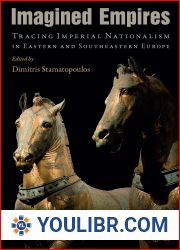


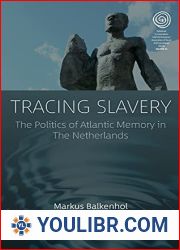

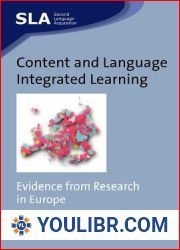
![Production-Comprehension Asymmetries in Child Language (Studies on Language Acquisition [SOLA], 43) Production-Comprehension Asymmetries in Child Language (Studies on Language Acquisition [SOLA], 43)](https://youlibr.com/img/6/649854_oc.jpg)
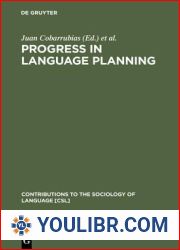



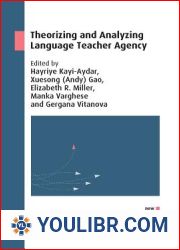




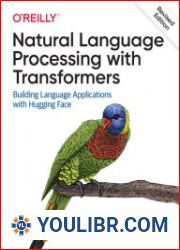






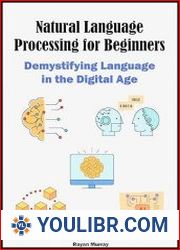
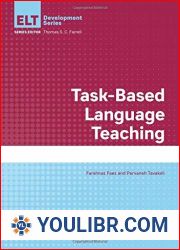
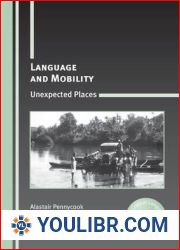

![Ethnic Minorities and Dutch as a Second Language (Studies on Language Acquisition [Sola]) Ethnic Minorities and Dutch as a Second Language (Studies on Language Acquisition [Sola])](https://youlibr.com/img/6/672077_oc.jpg)
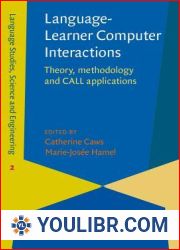
![Language Shift in the United States (Contributions to the Sociology of Language [CSL], 34) Language Shift in the United States (Contributions to the Sociology of Language [CSL], 34)](https://youlibr.com/img/5/501167_oc.jpg)
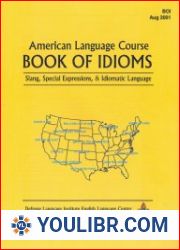




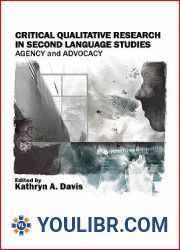

![Language and Power in the Creation of the USSR, 1917-1953 (Contributions to the Sociology of Language [CSL], 80) Language and Power in the Creation of the USSR, 1917-1953 (Contributions to the Sociology of Language [CSL], 80)](https://youlibr.com/img/5/504625_oc.jpg)
